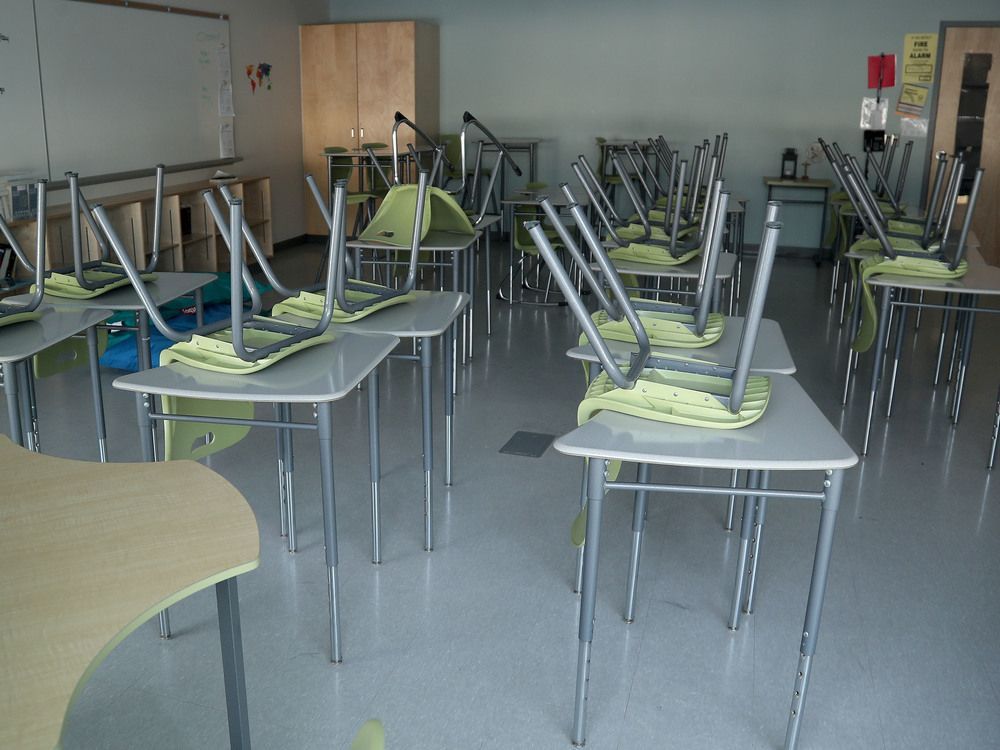- human behaviour, not weather, will affect spread of covid-19
- tests will be key in the confusion between covid-19 and the seasonal flu
- southern hemisphere saw dramatic drop in flu cases, but schools were also closed
every year, on schedule,
thousands of canadians come down with the flu. with the covid-19 outbreak added to the seasonal flu this year, what will canada look like with two outbreaks expected to circulate this autumn and winter season?many people are bracing for a new wave of cases once schools reopen this september, but the whole concept of “waves” comes from the influenza virus, which is a completely different virus from the novel coronavirus, says
dr. michael gardam, chief of staff at humber river hospital. influenza is influenced by season, particularly, by the relative humidity in a room. this is not the case with covid-19.
“it’s less about waves, and more just about the virus is going to do what it does based on what we humans do,” says gardam.the novel coronavirus doesn’t have seasons like the influenza virus, because it’s not influenced by weather as much as what we will be doing in the upcoming colder months.
warmer weather has not slowed down the spread of covid-19.“p
resumably, this year, there will be less kids getting sick because all the control measures we’re taking are exactly the same control measures you would take for other respiratory viruses,” says gardam. “there’s no difference. in terms of hand-washing, physical distancing, and monitoring symptoms — things like that will likely slow down a lot of the usual spread that we see.”countries in southern hemisphere have seen a dramatic drop in flu cases
in order to predict how covid-19 will affect the flu season, we looked at countries in the southern hemisphere — those who are just wrapping up their winter seasons at the same canada is wrapping up summer.by and large, the
southern hemisphere has seen significantly fewer cases of the seasonal flu this year compared to last year.in australia — which has its winter months and peak flu season from june to august — a recent government report noted that “
influenza and influenza-like illness (ili) activity are lower than average across all systems for this time of year.”australia had 36 confirmed flu deaths between january and july 26 this year. last year, the country saw 383 flu deaths in the same time frame. flu cases in australia had a high start in march and dramatically dropped in april.
chile, argentina, and south africa have all seen similar trends. chile saw a mere 12 confirmed cases of flu, compared to 5007 in 2019. argentina had 53 documented cases of the flu this year, compared to 4623 last year, and south africa saw an
almost-total lack of the flu this year, with only six confirmed cases (last year saw 1094 cases).many of these countries had their peak flu seasons during the months when school was also closed. in a story published in the washington post, halima dawood, head of infectious diseases at greys hospital in south africa said
school closures was the most important measure that clamped down on the spread of flu.“i think that was the one that interrupted flu’s whole chain,” she told the washington post.in canada, the seasonal flu will come at the same time that schools are reopening, which makes us different than countries in the southern hemisphere.
our behaviours will determine flu and covid-19 spread
this rate of covid-19 transmission this fall will be determined less by the temperature and humidity — as it is with influenza — and more by our ability to keep physical distancing and whether or not we reopen too early.“i think we will see an increase in covid in the coming months because of what we’re doing is as humans. what we’ve seen pretty much everywhere else in the world is that as you open up more and more, you’re going to see more spread,” says gardam. “that’s not surprising, because we’ve shown that when you close things down, you get less spread. so theoretically, if you open them up, you’re going get more.”
and as it gets colder, he adds, “we’re less likely to congregate outside, people are going to be more tempted to have parties in their homes, rather than to their backyard.”don’t miss the latest on covid-19, reopening and life. subscribe to healthing’s daily newsletter coming out of covid.
 3 minute read
3 minute read









